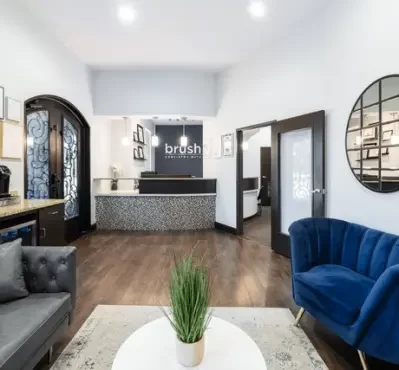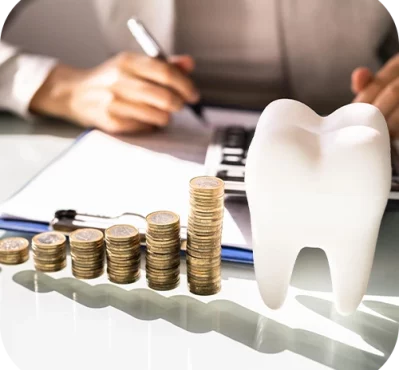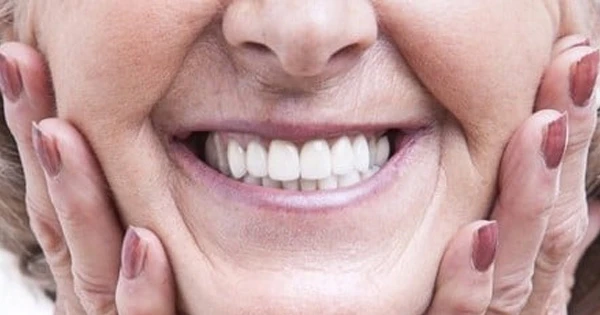We have many patients who come to the office complaining of headaches, waking up in the middle of the night, soreness of the jaw, or symptoms with certain teeth and they don’t have an explanation for what the source of the problem is. If you have healthy teeth and gums this problem could be even more confusing!
Many people clench and/or grind their teeth while they sleep. Some do it every single night, and others do it only in times of significant stress. It is simply a way for your mind to deal with stressful situations while your body is at rest during sleep. Some people have no symptoms whatsoever, and others get to the point of discomfort or may develop cracked or broken teeth because of it. Another tell tale sign is soreness in the jaws and headaches when you wake up. You also may have unexplained lethargy and tiredness throughout the day.
Most people are completely unaware they are doing it because it’s often done during sleep, but once the idea of clenching or grinding is brought up many people will actually catch themselves doing it during the day as well. Because many patients are unaware they clench or grind their teeth and because the thought of wearing a night guard is pretty unappealing I often get asked, “Do I really need a night guard?”. Other ways to recognize if you grind your teeth is if your sleeping partner notices you make noises from your mouth.
What Happens If I Grind My Teeth and Don’t Wear a Nightguard?
Bruxism is the medical term for forceful clenching and/or grinding of your teeth. It is considered a major cause of tooth problems because if untreated can lead to jaw pain, headaches, tooth pain, fractured fillings and broken teeth. Some patients will say that they notice signs of wear on their front or back teeth but aren’t always aware of the cause even though they know something is wrong.
The action of clenching and grinding is when your upper and lower teeth move back and forth with great force against each other. This can cause your teeth to flatten. If this continues to persist, the grinding of your teeth can cause temperature sensitivity, pain due to the thinning of the protective layer of enamel, cracks in the teeth, gum recession, and even loss of teeth. If grinding leads to these kinds of problems, we will often need to do crowns, root canals, or even extractions if the teeth cannot be restored.
Teeth grinding can also cause migraine headaches and pain in the shoulders, neck, back and ears. It’s very common for patients to visit the ENT because they think they have an ear infection when all along the issue is clenching and grinding. Since the TMJ is a joint with a very thin piece of cartilage separating the skull and the jaw, the displacement can oftentimes be corrected by chiropractic care.
What are My Options for Getting a Nightguard?
You can purchase a dental nightguard from a local drugstore or you can have one custom made by our caring team at brush365. Nightguards that you buy at the drugstore are not custom fitted. They either come in stock sizes or are “boil and bite”. They are usually large, unattractive, poorly fitted and may even come out during the night while grinding. The other issue with store bought appliances is they are made of a rubber-based material that actually encourages you to clench and grind more than you normally do, so it’s counterproductive.
Depending on what your grinding pattern is, we prescribe an appliance made of a certain material and shape so it will be most effective. To fabricate a nightguard we simply need to take molds of your upper and lower teeth, and a dental laboratory will make the appliance so it’s custom-fit for your teeth and situation.
Will a Nightguard Help Me Sleep Better?
Oftentimes, grinding of the teeth can be indicative of an underlying obstructive sleep apnea. At brush365, we can recommend third party companies that will conduct home sleep study tests if you’d like to get more insight on your sleep patterns. We also prescribe SNORE guards that function like nightguards in that they protect your teeth but they also slightly deviate your lower jaw forward so your airway stays open and to prevent snoring. Most patients report that their sleep quality drastically improves with these appliances and thus they are more well rested throughout the day.
Don’t Let it Gather Dust on Your Nightstand
Wearing your nightguard is an almost guaranteed way to prevent tooth wear, symptoms, fractures, and broken teeth while also protecting the existing restorations in your mouth such as crowns and implants. If you don’t wear the appliance you will not be able to solve the problem. Though getting used to wearing the nightguard may require a transition period, once you get over the “hump” you may find that it’s actually difficult to sleep without it!
If you have noticed wear and tear on your teeth, are experiencing any symptoms that you suspect might be from clenching or grinding, or if your spouse complains of the noise you make when you grind your teeth while sleeping, don’t be surprised if we tell you a nightguard is in order. The idea of wearing one isn’t appealing, but neither is pain, broken teeth, crowns, root canals or missing teeth!














